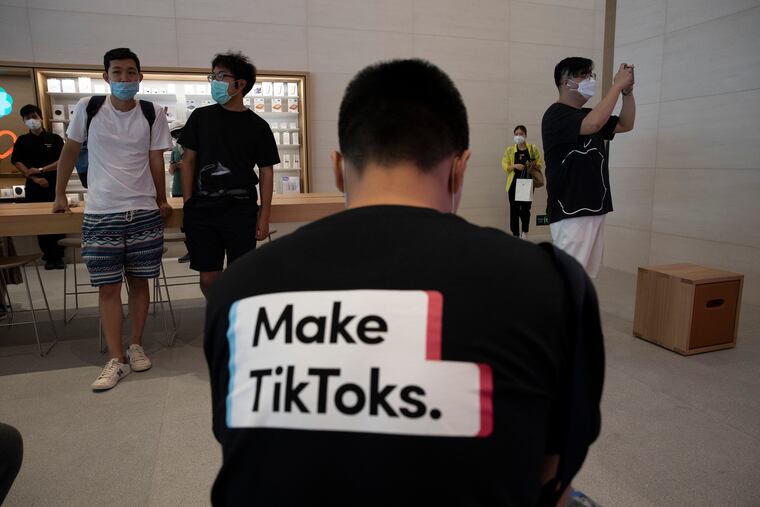Pompeo says Trump to take broad action on Chinese software, including TikTok and WeChat
President Donald Trump plans to take action on a what he sees as a broad array of national security risks presented by software connected to the Chinese Communist Party, Secretary of State Mike Pompeo said Sunday.

NEW YORK — President Donald Trump plans to take action on a what he sees as a broad array of national security risks presented by software connected to the Chinese Communist Party, Secretary of State Mike Pompeo said Sunday.
Pompeo’s remarks followed reports that Microsoft is in advanced talks to buy the U.S. operations of TikTok, which has been a source of national security and censorship concerns for the Trump administration.
“These Chinese software companies doing business in the United States, whether it’s TikTok or WeChat — there are countless more ... are feeding data directly to the Chinese Communist Party, their national security apparatus,” Pompeo said on Fox News Channel’s “Sunday Morning Futures.”
“Could be their facial recognition patterns. It could be information about their residence, their phone numbers, their friends, who they’re connected to. Those — those are the issues that President Trump has made clear we’re going to take care of," he said.
TikTok’s U.S. user data is stored in the U.S., with strict controls on employee access, and its biggest investors come from the U.S., the company said Sunday. “We are committed to protecting our users’ privacy and safety as we continue working to bring joy to families and meaningful careers to those who create on our platform,” a TikTok spokesperson said.
Trump had said on Friday that he would soon ban TikTok in the United States. A federal committee is reviewing whether that's possible, and its members agree that TikTok cannot remain in the U.S. in its current form, because it "risks sending back information on 100 million Americans,” said Treasury Secretary Steven Mnuchin.
“We all agree there has to be a change ... everybody agrees it can’t exist as it does," Mnuchin said Sunday on ABC's “This Week.”
As speculation grew over a ban or sale of the social media's U.S. business, TikTok posted a video on Saturday saying: “We’re not planning on going anywhere.”
TikTok's catchy videos and ease of use has made it popular, and it says it has tens of millions of users in the U.S. and hundreds of millions globally. Its parent company, Bytedance Ltd., launched TikTok in 2017. It bought Musical.ly, a video service popular with teens in the U.S. and Europe, and combined the two. It has a similar service, Douyin, for users in China.
But TikTok's Chinese ownership has raised concern about the potential for sharing user data with Chinese officials as well as censorship of videos critical of the Chinese government. TikTok says it does not censor videos and it would not give the Chinese government access to U.S. user data.
“The President, when he makes his decision, will make sure that everything we have done drives us as close to zero risk for the American people,” Pompeo said. “That’s the mission set that he laid out for all of us when we get — we began to evaluate this now several months back. We’re closing in on a solution. And I think you will see the president’s announcement shortly.”
The debate over TikTok parallels a broader U.S. security crackdown on Chinese companies, including telecom providers Huawei and ZTE. The Trump administration has ordered that the U.S. stop buying equipment from those providers to be used in U.S. networks. Trump has also tried to steer allies away from Huawei over concerns that the Chinese government has access to its data, which Huawei denies.
___
AP Business Writers Anne D’Innocenzio and Tali Arbel contributed to this report.